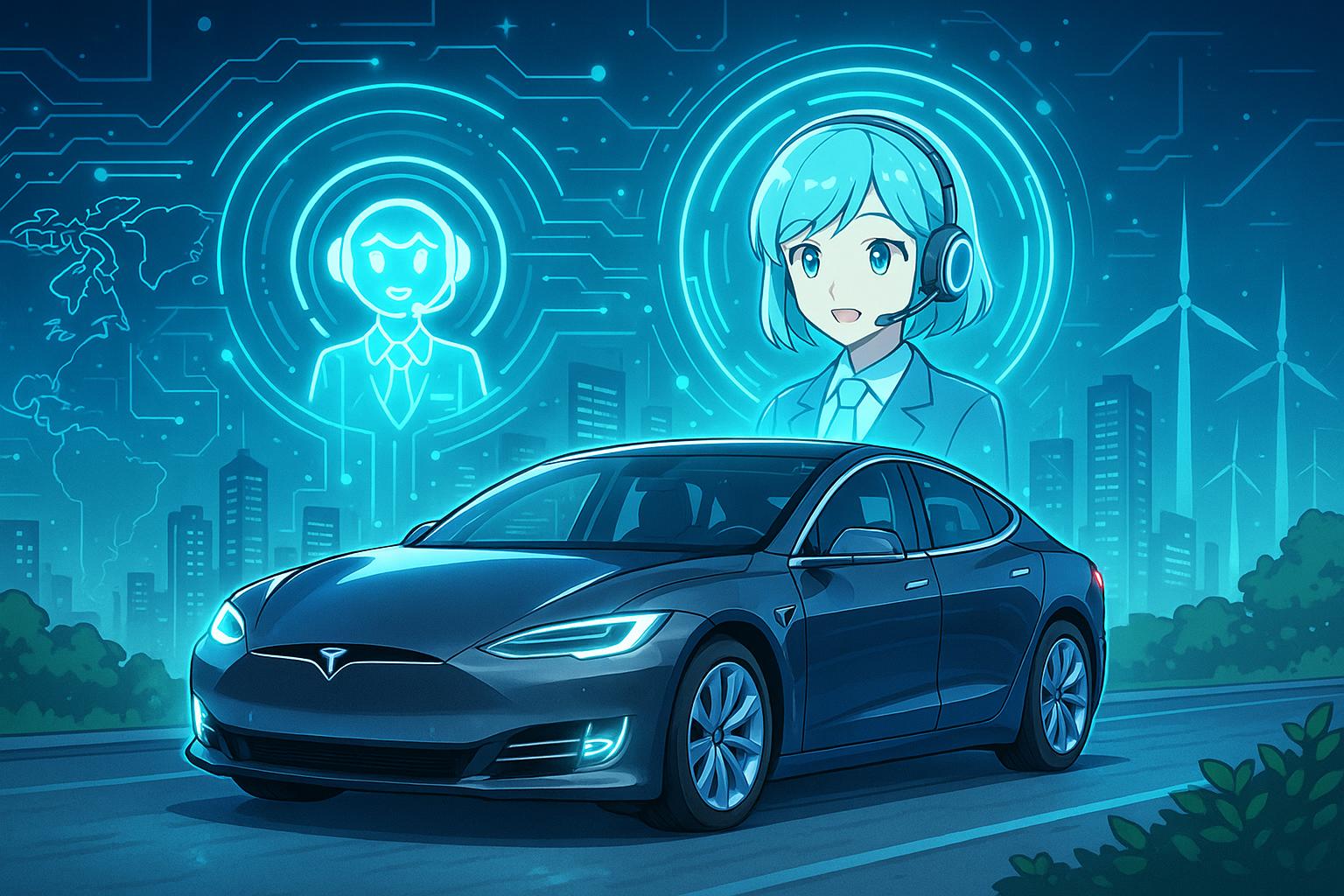Tesla has often been heralded as a pioneer in the electric vehicle (EV) realm, yet its customer service has frequently tainted its image. Reports indicate that owners adore their vehicles but express frustration over the company's customer support, particularly regarding prolonged repair times and service delays. In a bid to rectify this, Tesla is initiating a pilot programme that integrates artificial intelligence into its service communications, a move announced by Raj Jegannathan, the company's IT vice president.
This AI system is designed to monitor communication between customers and service representatives. It will track customer sentiment, alerting management to escalate issues if it detects dissatisfaction or delays. Moreover, within weeks, customers will have the option to type “escalate” in their messaging centre to fast-track their concerns to a manager. Industry analysts suggest that this could streamline service processes and foster a more responsive relationship between Tesla and its clientele.
Despite these improvements, Tesla’s challenges extend beyond customer service. The company's recent financial reports reveal troubling trends; in the first quarter of 2025, automotive revenue plummeted by 20% year-on-year, with net income witnessing a staggering drop of 71%. This decline is attributed to several factors, including CEO Elon Musk’s controversial initiatives with government bodies, which appear to have impacted Tesla's sales figures adversely.
Furthermore, while Tesla grapples with these issues, the overall EV market remains robust. Data from the European Automobile Manufacturers’ Association indicates that despite Tesla’s 37% sales drop in Europe during the same period, the broader EV market has expanded by nearly 24%. This divergence emphasises the urgent need for Tesla to address its service concerns and adapt to the evolving automotive landscape, where customer experience has become pivotal.
Amid these crises, Tesla's customer service isn’t the only area exhibiting strain. Reports indicate that customers with Tesla Insurance are confronting similar obstacles, including delayed claims and challenging experiences. Many policyholders have expressed dissatisfaction with the slow response times and the inadequacy of service, which contradicts the insurer's promises of enhanced coverage.
Adding to Tesla's woes is ongoing litigation alleging that the company monopolises the vehicle repair market. A group of owners has filed a proposed class-action lawsuit claiming that the company’s practices lead to inflated prices and long wait times for repairs, effectively coiling customers into expensive and time-consuming service experiences. The lawsuit points to systemic issues within Tesla's service framework, drawing attention to the limited number of authorised service centres and restricted access to essential repair parts.
Critically, while Tesla's AI initiative aims to alleviate some customer service pain points, there is growing discussion surrounding the environmental impact of the technology itself. Notably, the International Energy Agency has highlighted that AI processes, such as those powered by data centres, can consume significant amounts of energy. According to the United Nations Environment Programme, using AI tools can be significantly more energy-intensive than traditional online searches, raising questions about how sustainably Tesla’s AI will operate as it seeks to improve customer service.
Despite these challenges, Tesla appears committed to utilising renewable energy across its operations, as outlined in its recent Impact Report. However, the sources that will power the AI initiatives remain unclear, underscoring a need for transparency in how the company reconciles innovation with environmental responsibility.
As Tesla continues to navigate these turbulent waters, the stakes are high. An effective resolution to customer service issues not only stands to enhance customer loyalty and help mitigate its revenue declines, but it also serves as a critical component of maintaining its status as a leader in the rapidly evolving EV market.
Reference Map
- Paragraph 1: [1]
- Paragraph 2: [2]
- Paragraph 3: [1], [3]
- Paragraph 4: [6]
- Paragraph 5: [4], [5]
- Paragraph 6: [1], [7]
- Paragraph 7: [1], [3]
- Paragraph 8: [1], [4]
- Paragraph 9: [1], [5]
Source: Noah Wire Services
